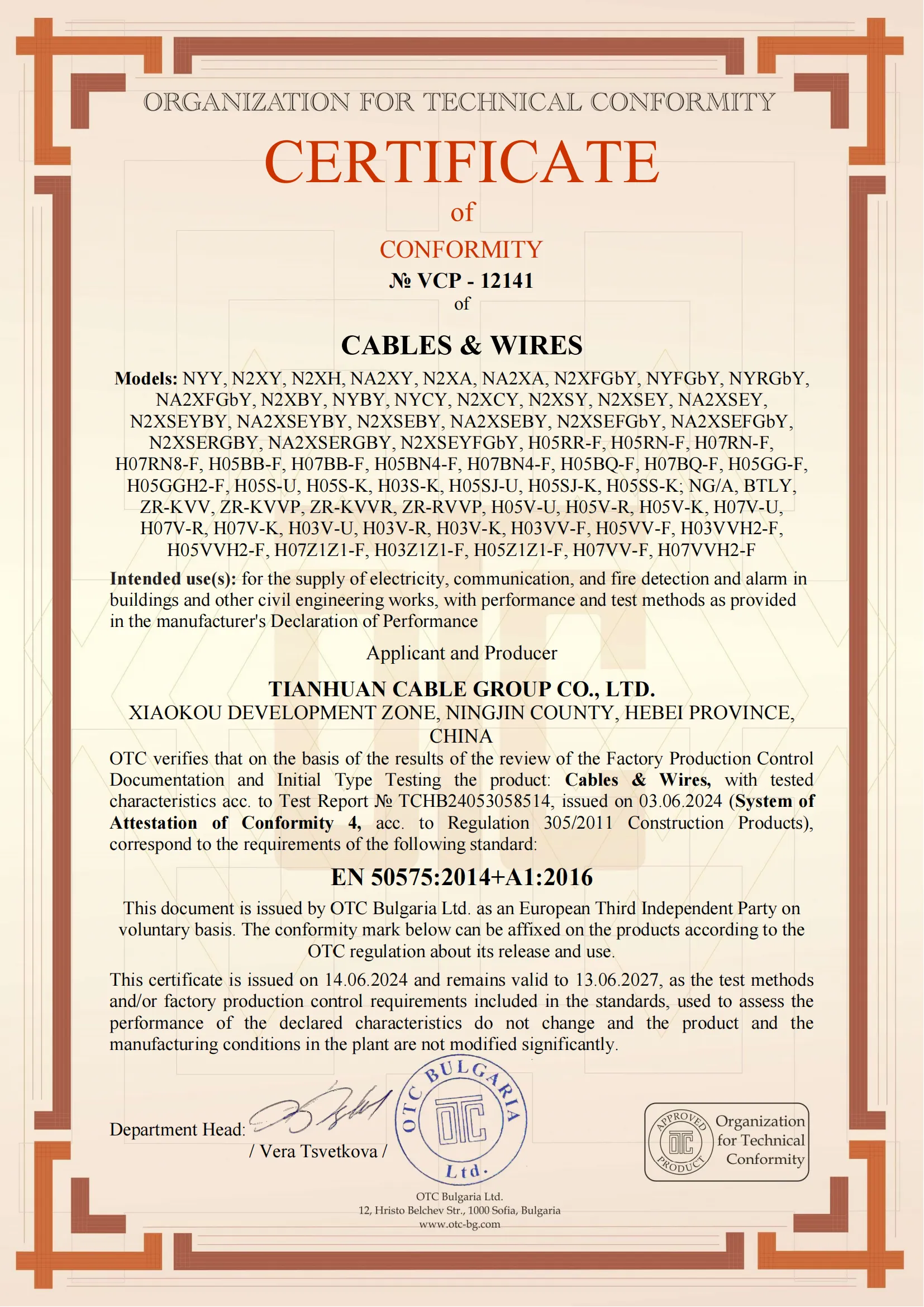
Renewable Cable Certification Process and Guidelines for CE Mark Compliance in 2023
CE Certification for Renewable Cable Ensuring Safety and Efficiency
In the contemporary energy landscape, the demand for renewable energy solutions has surged, leading to advancements in technology and infrastructure. One crucial component of this advancement is the development of renewable cables, which play a vital role in the transmission of renewable energy from generation sites to consumers. With the increasing reliance on these cables, ensuring their quality and safety has never been more critical. This is where CE certification comes into play.
CE certification, marked by the initials CE, stands for Conformité Européenne, indicating that a product meets the safety, health, and environmental protection standards set by the European Union. For renewable cables, CE certification signifies compliance with EU directives and regulations, ensuring that these products are safe for use and minimize environmental impact.
Importance of CE Certification
1. Safety Assurance One of the primary reasons for obtaining CE certification is to guarantee that the renewable cables are safe for both users and the environment. These cables are often employed in high-voltage applications, and any failure could lead to hazardous situations. CE certification ensures rigorous testing and standards that reduce the risks associated with electrical installations.
2. Market Access In Europe, products without CE certification cannot be legally sold. For manufacturers of renewable cables, CE certification opens doors to the European market, ensuring their products meet necessary regulations. This accreditation not only enhances credibility but also allows manufacturers to compete effectively in a growing sector.
3. Quality and Performance CE certification involves comprehensive assessments that benchmark products against industry standards. For renewable cables, this can include tests for electrical properties, thermal stability, and resistance to environmental factors. Consequently, CE-certified cables generally exhibit higher performance levels, increasing their efficiency in energy transmission and reducing energy losses.
4. Consumer Confidence With the growing awareness around the importance of renewable energy, consumers are becoming increasingly discerning about the products they choose. CE certification acts as a mark of quality, giving consumers confidence that the renewable cables they purchase are reliable, safe, and environmentally friendly.
ce certification renewable cable

The Certification Process
The path to CE certification for renewable cables involves several steps
- Product Testing Manufacturers must conduct a series of tests to ensure their products meet the requirements laid out in the relevant directives, such as the Low Voltage Directive (LVD) or the Electromagnetic Compatibility Directive (EMC).
- Technical Documentation Detailed documentation must be prepared, including design, manufacturing processes, and safety assessments. This documentation is crucial for demonstrating compliance during inspections.
- Declaration of Conformity Upon successful testing and documentation, the manufacturer must issue a Declaration of Conformity, stating that the product meets all relevant EU standards.
- Affixing the CE Mark Finally, the product can be marked with the CE logo, indicating that it has been certified and is suitable for the European market.
Conclusion
As the global shift towards renewable energy continues to gain momentum, the significance of CE certification for renewable cables cannot be overstated. This certification not only ensures the safety and efficiency of the cables but also paves the way for smoother market access and greater consumer trust. For manufacturers, this serves as a vital testament to their commitment to quality and sustainability. In a rapidly evolving sector, CE certification is not just a regulatory requirement; it is a foundational element that supports the safe and effective implementation of renewable energy solutions. By prioritizing CE certification, stakeholders can fully embrace the potential of renewable energy, driving progress towards a more sustainable future.
-
Reliable LIYCY Cable Solutions for Low and Medium Voltage ApplicationsNewsJul.14,2025
-
Premium Overhead Electrical Wire Solutions for Low and Medium Voltage ApplicationsNewsJul.14,2025
-
Innovative XLPE Electrical Cable Solutions for Modern Low and Medium Voltage NetworksNewsJul.14,2025
-
High-Quality Ethylene Propylene Rubber Cable – Durable EPDM Cable & 1.5 mm 3 Core OptionsNewsJul.14,2025
-
Exploring the Versatility of H1Z2Z2-K 1X4mm2 Cables in Modern ApplicationsNewsJul.14,2025
-
Uses of Construction WiresNewsJul.14,2025
-
Types of Neoprene CableNewsJul.14,2025














